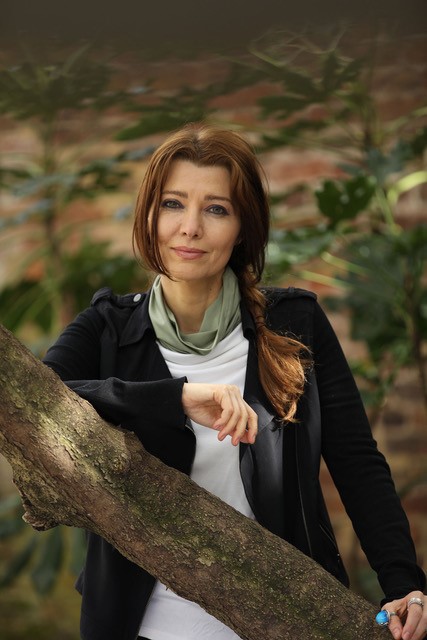By Claire Armitstead
LONDON (The Guardian) — In Elif Shafak’s latest novel, a single raindrop rises and falls through millennia. In Nineveh, in the seventh century BC, it lands on the scalp of Ashurbanipal, a king whose obsession with building a great library saves the Mesopotamian epic of Gilgamesh from destruction for blasphemy; in 19th-century Constantinople, it lands on Arthur, who has just arrived on an official mission to find a missing section of the epic, depicting a pre-biblical flood. It reappears as the last drop of water in a bottle that terrified 21st-century Yazidis carry with them on their flight from slaughter into the parched mountains of Iraq.
The ninth novel the Turkish author has written in English and her 13th overall, There Are Rivers in the Sky is a story of “three characters, two rivers and one poem,” she says. The rivers are the Thames and the Tigris, and the poem is Gilgamesh. But Shafak wanted to make a drop of water the unifying motif, she explains, because “when we talk about climate crisis we’re talking about a crisis of fresh water, which affects everyone, but in some parts of the world it’s particularly bad. Seven of the most water-stressed nations are in the Middle East and north Africa, and it has massive consequences for women and impoverished people.”
We’re talking in the study of Shafak’s London home, where books of every genre tower in bookcases over a large leather-topped desk, beneath which a little white dog called Romeo makes himself comfortable. “I do a crazy amount of research,” Shafak says. “You know, I was in academia for a long time, in political science, women’s and cultural studies. That interdisciplinary knowledge is something that I really treasure, and I don’t like it when people put it into separate boxes. I love novels that are full of ideas, multiplicity, nuances, layers – this really speaks to my heart. So there’s a lot of research, but there’s also a lot of imagination and intuition.”

When we meet, it is the end of the school term, and both Shafak’s teenage children are hanging around, having just finished important exams. But an aura of serenity emanates from the household, as well as from Shafak herself. The surfaces are uncluttered. She glides in with glasses of tea and large slices of homemade cake, before settling down to explain her dismay about the state of the world and her belief that fiction is one of its last democratic spaces.








